
World
22:32, 04-Sep-2017
BRICS still relevant, no cracks in partnership, says delegate
By Sim Sim Wissgott
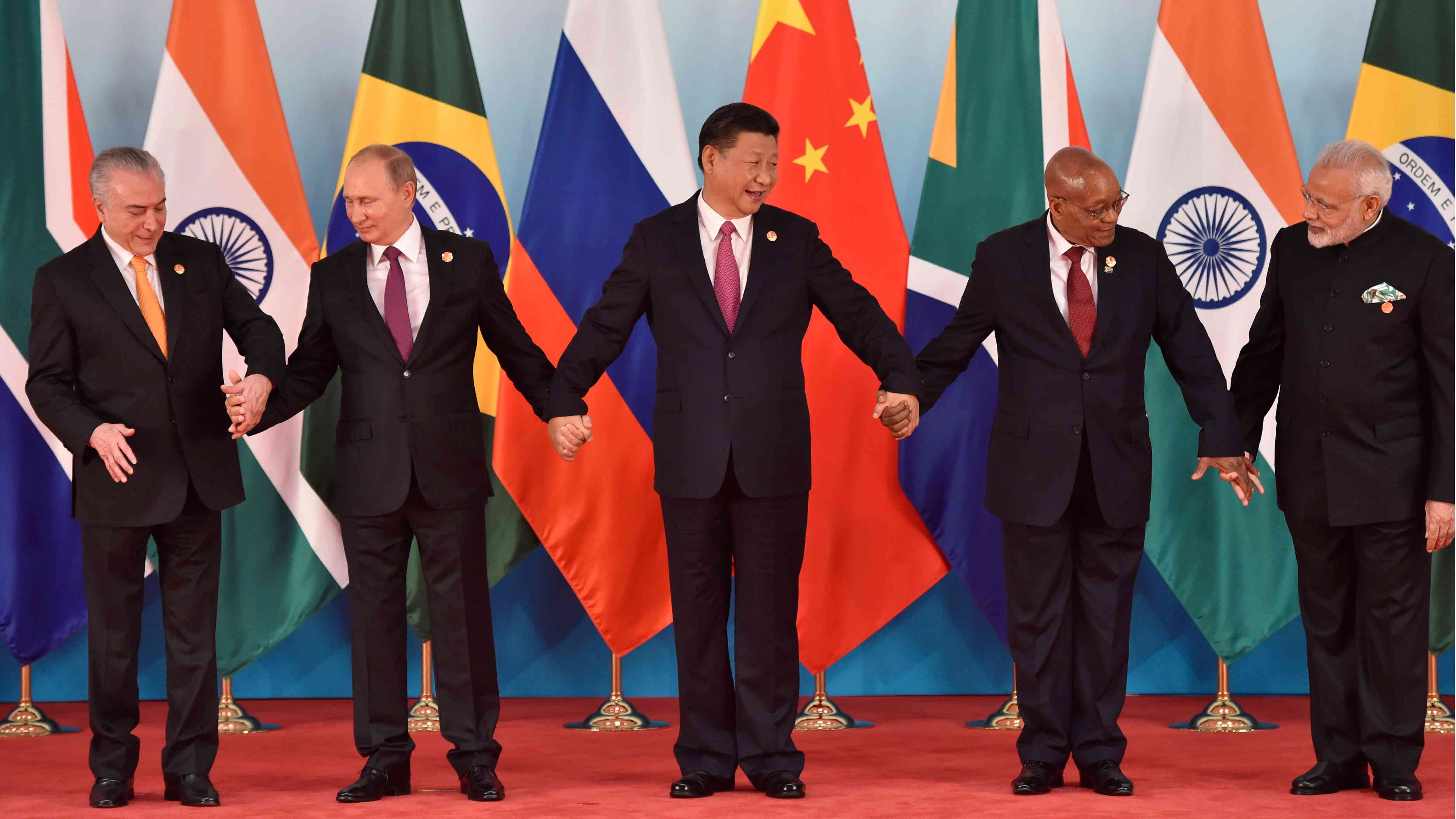
Differences between BRICS countries are bound to occur but there are no cracks in the partnership and, far from losing its relevance, it is destined for expansion, a South African delegate attending the 9th BRICS Summit in Xiamen, China, told CGTN on the sidelines of talks on Monday.
A recent dispute between China and India in the Donglang border area seemed to confirm the opinion of critics who argue the five BRICS partners – Brazil, Russia, India, China and South Africa – have too little in common to make an impact.
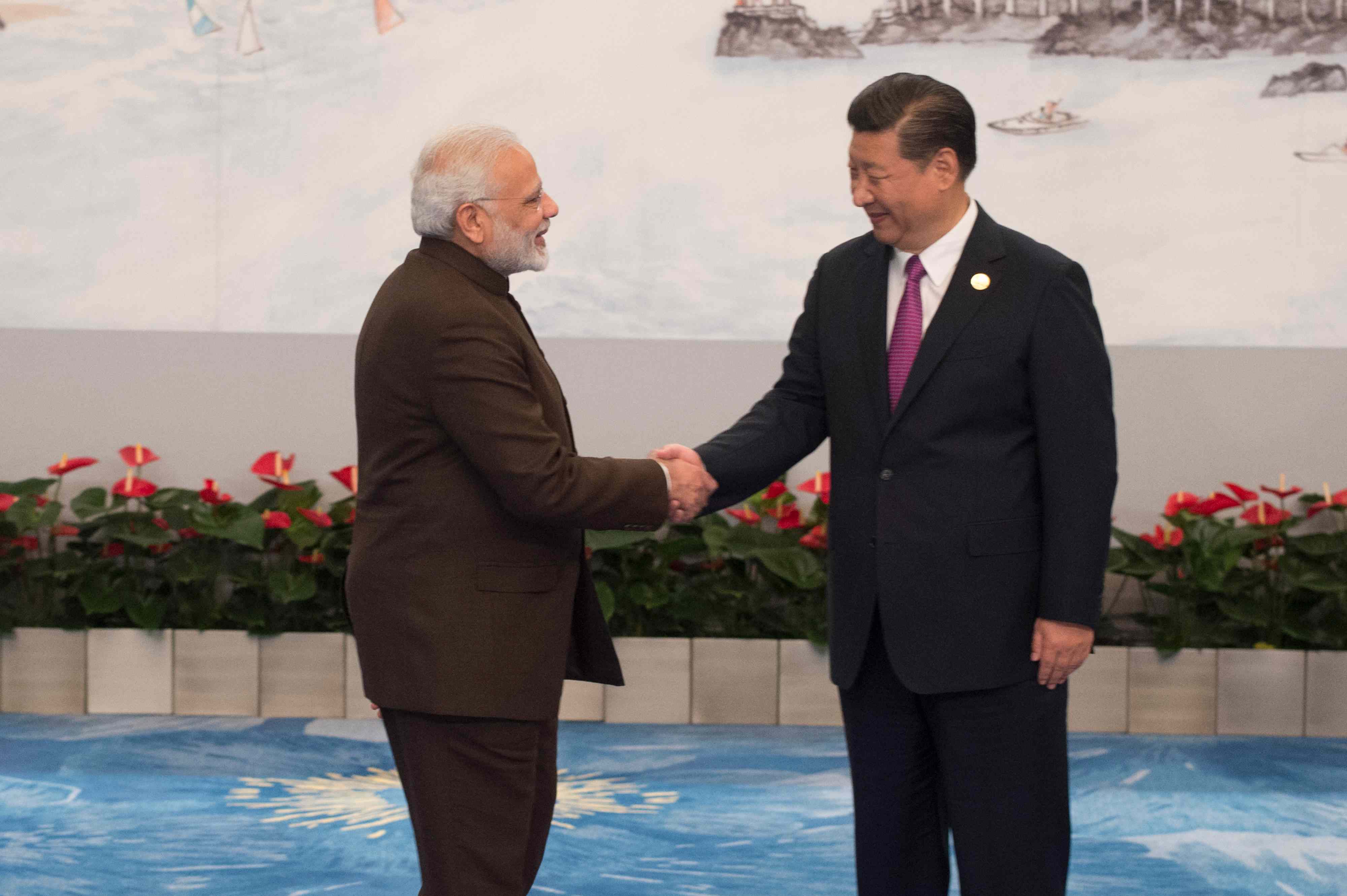
Chinese President Xi Jinping (R) welcomes Indian Prime Minister Narendra Modi for a banquet dinner during the BRICS Summit in Xiamen, China on September 4, 2017. /AFP Photo
Chinese President Xi Jinping (R) welcomes Indian Prime Minister Narendra Modi for a banquet dinner during the BRICS Summit in Xiamen, China on September 4, 2017. /AFP Photo
However, the two countries ended their two-month standoff just a week before Chinese President Xi Jinping and Indian Prime Minister Narendra Modi were due to meet at the BRICS Summit in Xiamen, as India withdrew troops from the area.
“We’re going to have those kinds of things happening,” Sunil Geness, chairman of the Deregulation group of South Africa’s BRICS Business Council, told CGTN in the southeastern Chinese city on Monday.
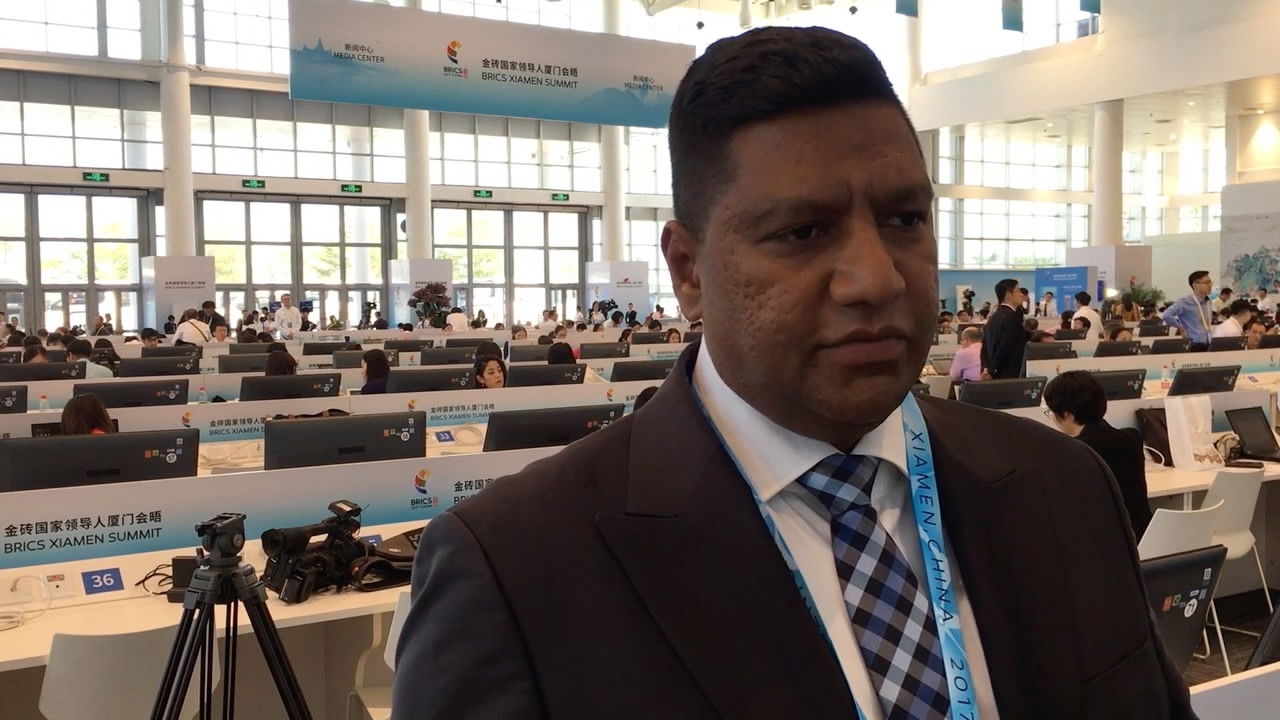
“The fact that these two leaders have come out here... it shows there’s a conviction, there’s nothing that cannot be discussed in an open and transparent manner,” he noted.
“There will be differences on issues, fundamental differences based on the geopolitics of the region itself and the fact that both India and China are leading economies... which means that you’re going to have two heavyweights which are in the same region, competing for similar resources and positioning from a geopolitical perspective.”
But the benefits to be had from five of the world’s biggest emerging markets working together – from boosting trade links to exchanges of people and ideas – were far more important, Geness insisted.
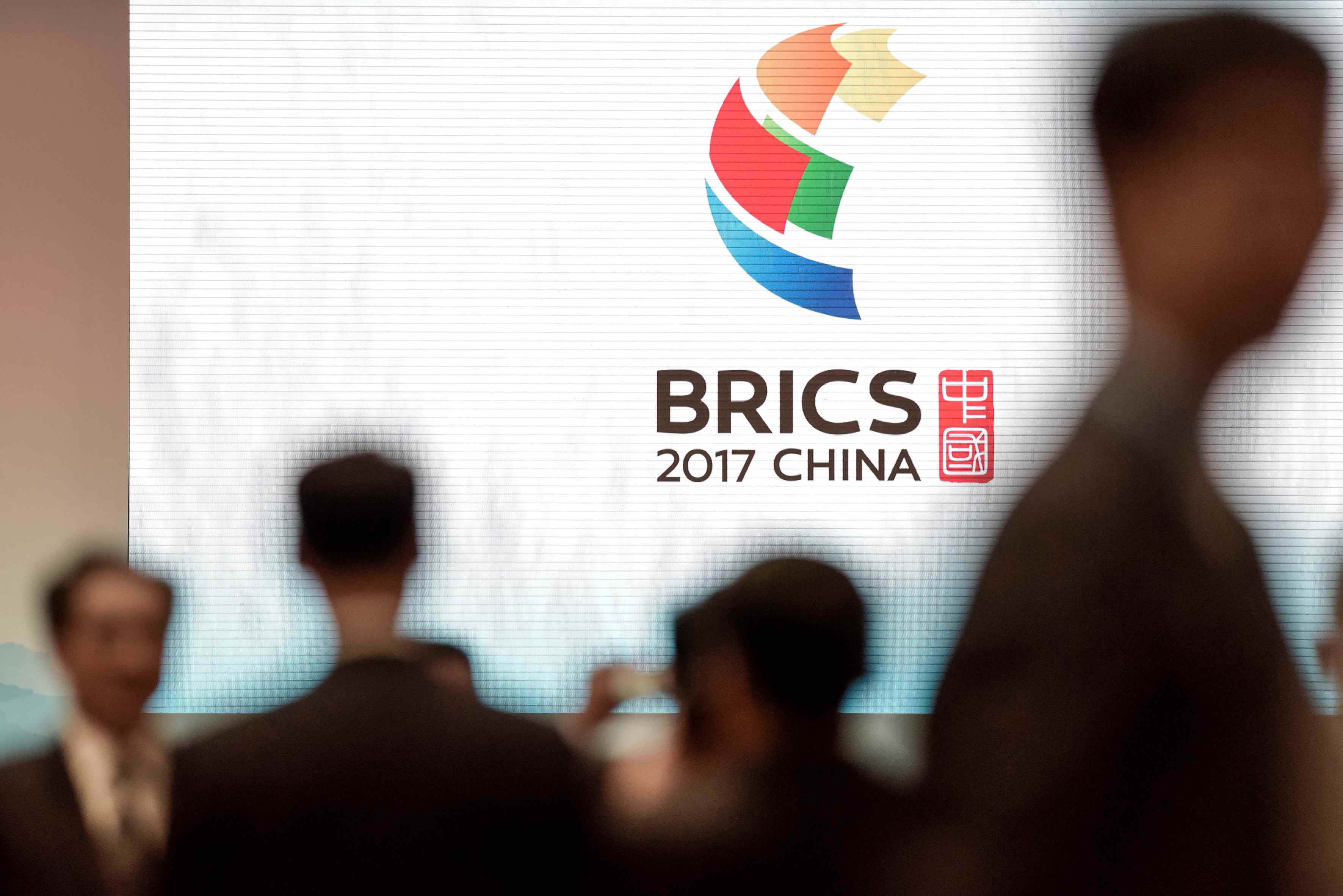
Delegates arrive prior to the opening ceremony of the BRICS Business Forum in Xiamen, Fujian Province, September 3, 2017. /AFP Photo
Delegates arrive prior to the opening ceremony of the BRICS Business Forum in Xiamen, Fujian Province, September 3, 2017. /AFP Photo
Expanding the partnership
Five emerging markets and developing countries – Egypt, Guinea, Mexico, Tajikistan and Thailand – have been invited to this year’s Summit alongside the five BRICS countries under a new concept known as BRICS Plus, launched under China’s chairmanship this year.
And an official expansion of BRICS could soon be on the cards, as the partnership seeks to provide a counterweight to existing Western-dominated blocs, Geness predicted.
“Expanding BRICS in time to come will be a good idea, to ensure that we have a central gravitas of countries that are able to contend and compete with the superpowers of this world,” he said.
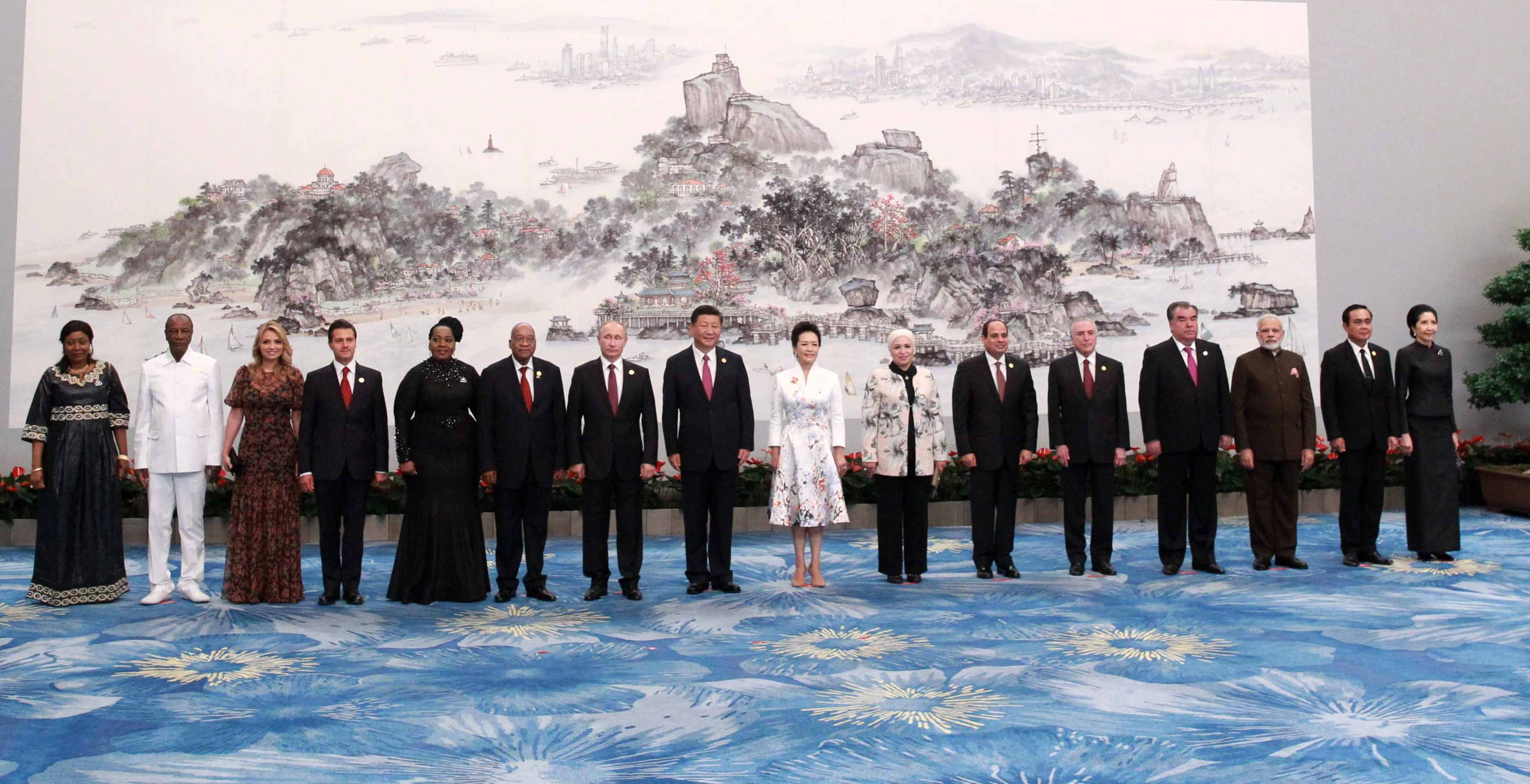
The leaders of BRICS countries and five emerging markets and developing countries, and their spouses, pose for a group photo ahead of a banquet during the BRICS Summit in Xiamen, China, September 4, 2017. /AFP Photo
The leaders of BRICS countries and five emerging markets and developing countries, and their spouses, pose for a group photo ahead of a banquet during the BRICS Summit in Xiamen, China, September 4, 2017. /AFP Photo
At the same time, BRICS – which has only existed in its current form since 2010 when South Africa joined the group – needs “to perfect” its existing model before it can grow bigger, he urged.
“The BRICS nations need to demonstrate increasingly successful opportunities and remove the detractors that are out there, to show to them that these BRICS are very serious,” Geness said.
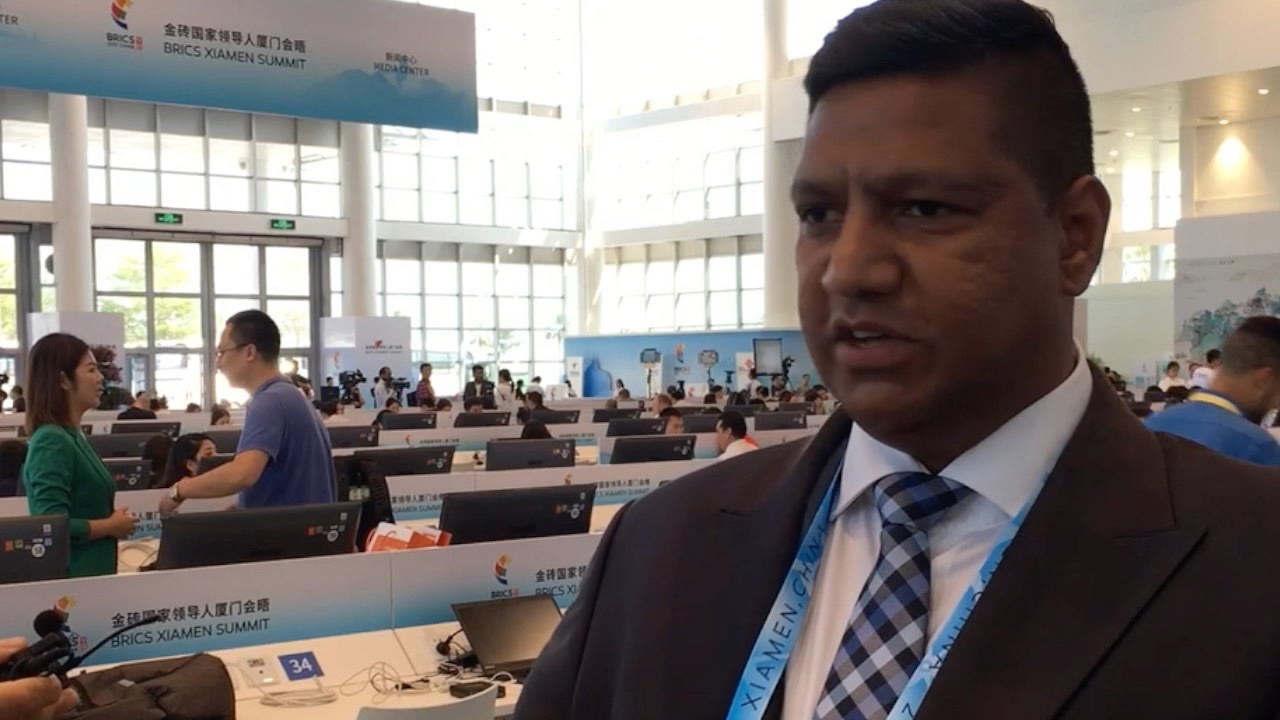
“In due course we can extend this much further to other developing countries like Mexico, like Egypt... other countries, which are on the border and periphery.”
“At the end if you have the same goals and mindset, then you all pool in the same direction. There will be cultural differences and this is what sets us apart but at the same time, those cultural differences add to the richness of the creativity and the innovation” in the partnership, he said.
Besides Xi Jinping and Narendra Modi, Russian President Vladimir Putin, South Africa’s Jacob Zuma and Brazil’s Michel Temer are attending the 9th BRICS Summit, which kicked off on Monday until Tuesday.
1721km

SITEMAP
Copyright © 2018 CGTN. Beijing ICP prepared NO.16065310-3
Copyright © 2018 CGTN. Beijing ICP prepared NO.16065310-3